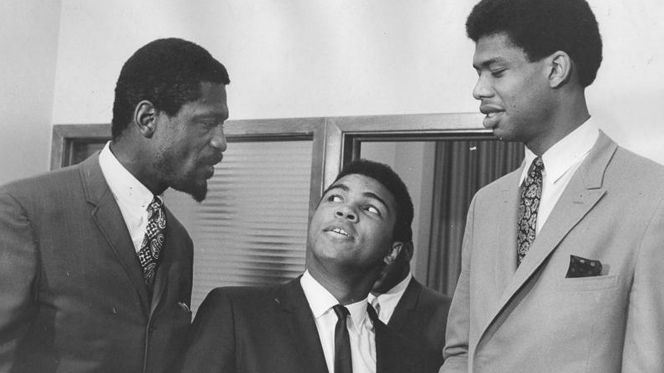Interesting and thoughtful analysis by Aidan Gilchrist-Blackwood on the relationship between Black athletes and activism. Gilchrist-Blackwood’s view is that the latest wave of protests by Colin Kaepernick and those he inspired has brought the issue of police brutality to national prominence on an entirely “new scale,” forcing white Americans to deal with it in a way they had not before. Also of note, according to Gilchrist-Blackwood, was the venue used by protesters, in that athletes were interrupting the sacred arena of sports to voice their opposition to injustice. Finally, the question is asked whether it is fair to expect the already marginalized athlete to shoulder the advocacy burden.
The points raised by Gilchrist-Blackwood are fair ones, if a bit naïve. First, the overwhelming majority of the analysis, criticism, and attention paid to the national anthem protests has been on the method of protest itself, with very little focus on the underlying issue of racism, including police brutality, itself. While there have been a handful of summits, ride-alongs and discussions with police departments, and a visit to Congress, whites were largely successful in their deflection and derailment tactics designed to ignore the racism that was at the heart of the protests. Those who objected to the protests spent most of their time engaged in campaigns to malign and punish the participants, boycott the National Football League, write pieces about how disrespectful and dishonorable their fellow Americans were for exercising their rights, and generally lament that the uppity negroes were once again demonstrating that they did not know their place.
As for the burden bearing—it is not clear to whom this is directed. Almost no white professional athletes participated in the national anthem protests. The notable exceptions were Megan Rapinoe of the National Women’s Soccer League, and the white members of the Women’s National Basketball Association’s Indiana Fever. All women, btw. There was far more participation amongst white college and high school students; still, these white individuals were far outnumbered by their Black teammates and peers.
The fact of the matter is, despite all the talk of “brotherhood” “camaraderie” and “family” amongst professional athletes, white athletes are still white. And they harbor the exact same racist tendencies, beliefs, and assumptions of their less athletically talented brothers, sisters, mothers, fathers, friends, cousins, etc. Proximity does not automatically engender better understanding of or desire to end racism. Black athletes should not have to bear the burden of fighting injustice alone; but white inclusion in these feats would necessitate substantive racial consciousness and dedication to ending white American hegemony, which are sentiments that centuries of sustained racism demonstrate that they simply do not possess.



